Rural health inquiry: Doctor warns 40 towns could lose GPs
A health boss has been grilled during a probe into rural health, while a senior doctor warned more than 40 communities could be without GPs. FIND OUT WHY
Dubbo News
Don't miss out on the headlines from Dubbo News. Followed categories will be added to My News.
Hospitals regularly run out of antibiotics, an entire council region is often left without access to a doctor and patients in country NSW are being treated with “cheap and nasty”equipment, a long serving GP has told a rural health probe.
Associate Professor Aniello Iannuzzi was called to give at evidence at a public hearing in Wellington on Tuesday, as part of a parliamentary inquiry into the state of healthcare in rural, remote and regional NSW.
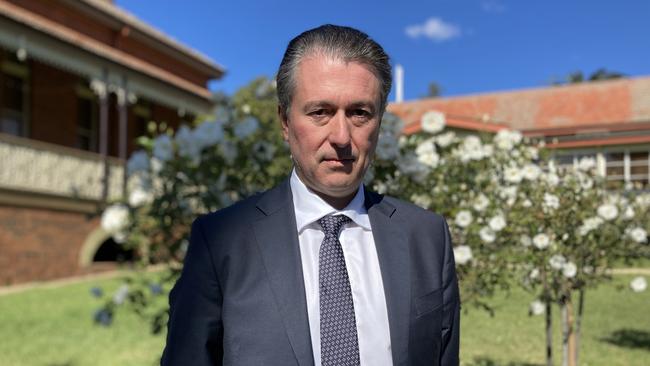
The Coonabarabran-based doctor and Warrumbungle Shire Council deputy mayor warned of a “very dangerous situation”confronting residents who rely on hospitals in his home town and the nearby communities of Dunedoo, Coolah and Baradine.
“There have been times in our shire where there has been no medical cover,” he said.
“Weekends and after hours, it’s very common not to have medical cover. It’s a very dangerous situation.”
Dr Iannuzzi said in his 25 years of experience at Coonabarabran he had noticed a downgrading and “deliberate stripping of medication and equipment” from health services.
“There are times where we run out of antibiotics to treat basic conditions,” he revealed.
“You apologise to the patient … send an email to management hoping they want to address the problem, sometimes it’s addressed, sometimes it’s not. You hope the pharmacy down the road might be open … sometimes you choose a second or third line antibiotic.”
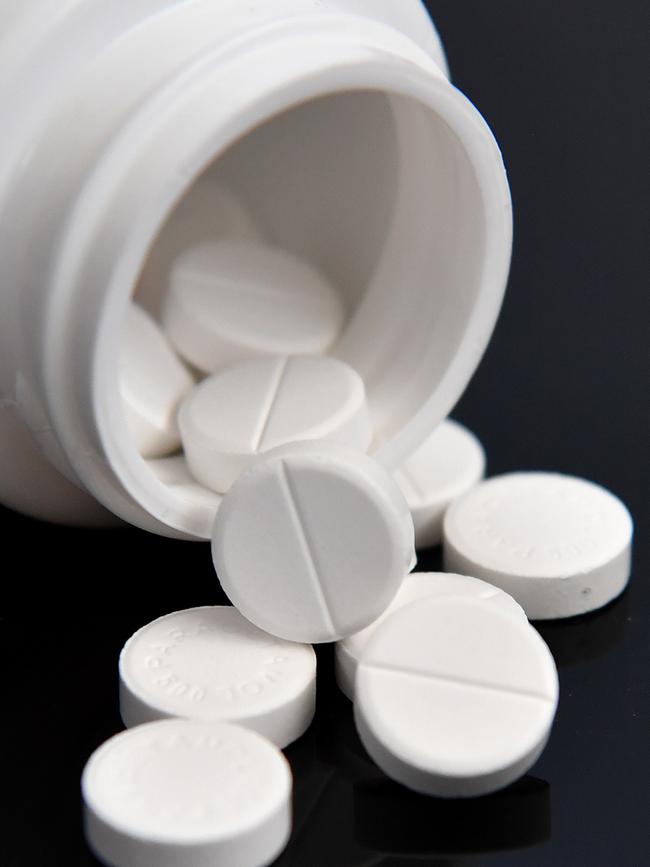
Patients needing treatment for lacerations in Coonabarabran were often treated with “cheap and nasty” equipment, Dr Iannuzzi told the inquiry.
He said “basic suturing equipment” and “instruments to remove foreign bodies from the ears and eyes” had been made unavailable.
“The excuse for the surgical instruments would be as follows ‘well we can’t sterilise them in Coonabarabran’ … instead they give us cheap and nasty disposable instruments which are very hard to work with.
“You can’t do fine repair of lacerations with cheap and nasty disposable instruments … the patients are the ones who lose out.”
Dr Iannuzzi said the problems weren’t confined to Coonabarabran and he slammed NSW Health for it’s handling of the situation.
“The antibiotic problem is a Local Health District problem,” he said.
“The biggest problem in the health system in NSW is governance.
“Sadly these downgrades happen with no communication and no consultation which is doubly sad because on the one hand we keep getting told ‘oh yes we’re having meetings, we want to consult, we’re working as teams’ but sadly it doesn’t happen that way. There’s always an excuse and never anyone that takes responsibility.”
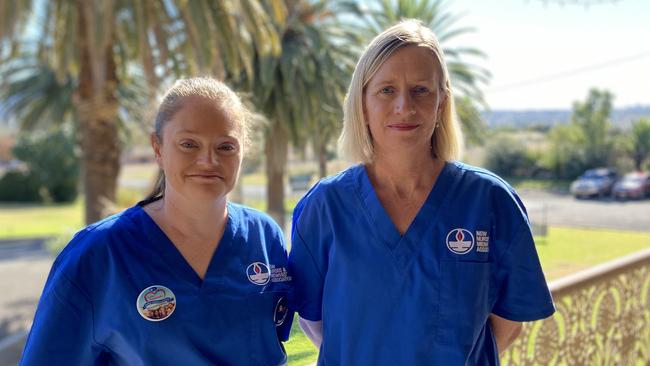
Dr Iannuzzi’s concerns about supply shortages in hospitals were shared by nurses who gave evidence at the hearing.
Gilgandra Multi-Purpose Health Service nurse Sheree Staggs told of how a car park doubled as an equipment exchange, where staff from a nearby privately funded aged care facility shared incontinence pads because her hospital had none.
“We often run out of supplies so we borrow from other health services,” Mrs Staggs said.
Canowindra-based nurse Samantha Gregory-Jones said it was “a common occurrence” to run out of antibiotics.
“Just two days ago we had three patients on this medication and we were only allocated from the pharmacy two boxes,” she said.
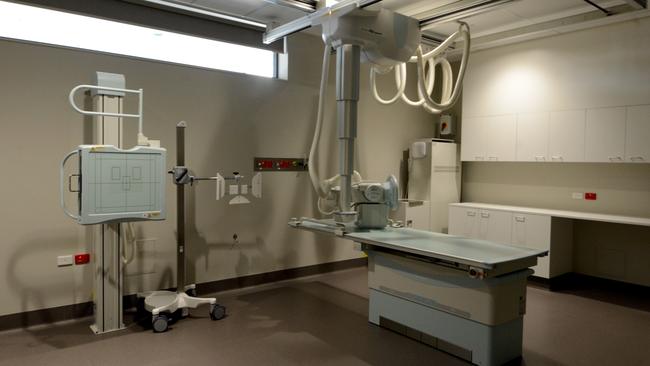
Patients also gave evidence at the hearing, with Gulgong-based Dr Kitty Eggerking saying petitioners in the town who have campaigned for better health services were criticised by health bureaucrats for speaking out.
“We knew that this was a concerted effort to undermine the efforts to improve the healthcare in our town,” Dr Eggerking said.
“Our health system is in crisis, please, we don’t want to hear that everything is okay because it isn’t.”
Sally Empringham, a teacher from Nevertire, said hospitals in smaller towns had effectively become “nursing homes and palliative care homes”.
“One of my daughters broke her arm not long ago during harvest and it was a three hour round trip to Dubbo for an x-ray when we have an x-ray machine in Warren.
“One of my daughters had run of the mill gastro, we presented to Warren Hospital and were told they couldn’t hold her for more than six hours and we had to take her to Dubbo.
“I have two friends who’ve had to deliver children on the side of the road.”
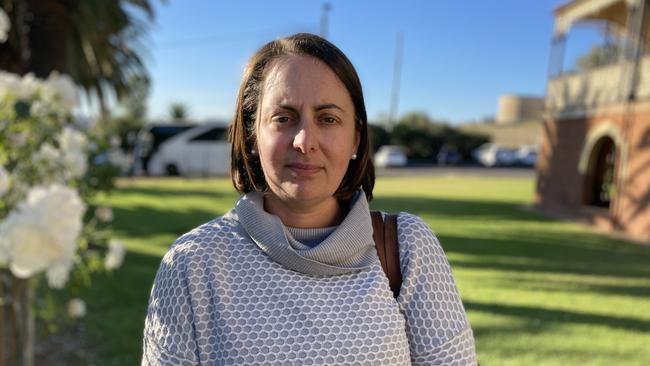
Mrs Empringham said one of her friends suffered a laceration and went to the hospital in Nyngan for treatment.
He was told to go to the hospital in Warren because there was no doctor in Warren, however she said he was later told Warren Hospital had no suture kits.
“He had to drive to Warren carrying his own suture kit,” Mrs Empringham said.
“Because these local hospitals are no longer able to facilitate and look after their community everything goes to Dubbo.”
On Thursday another hearing was held in Dubbo where senior health bosses have evidence and sought to address concerns raised in Wellington.
Western NSW Local Health District (LHD) chief executive Scott McLachlan offered an apology to patients or families who were not satisfied with care they had received.
“To be clear there are no restrictions on the medication or consumable stock that is kept in a hospital,” Mr McLachlan said.
“All of our hospitals do keep a stock of different antibiotics.”
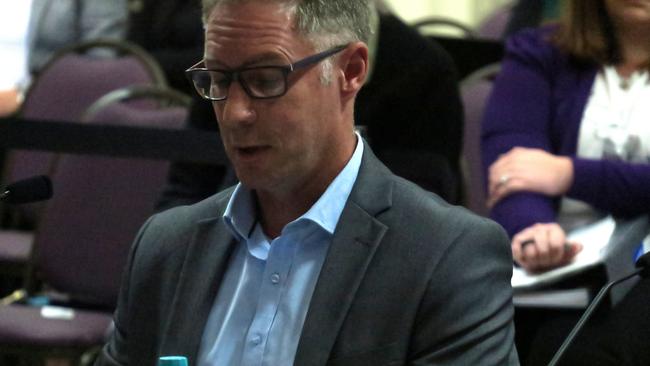
Mr McLachlan said not every hospital could hold the same medication or equipment and he encouraged any staff with concerns to report them.
“They all do have supplies, if they need additional supplies we can give them to them quickly.
“No one should pretend that everything in rural health is wonderful. The big challenge for us is workforce.
“At the heart of these problems is the ongoing supply of GPs who can work in our hospitals. Even when there are GPs locally, not all doctors want to or can work at the hospital.”
The amount of money going to hospitals had increased and $1 billion was spent each year in the district,” Mr McLachlan revealed.
“Bathurst has seen a greater percentage budget increase than both Orange and Dubbo,” he said.
“Bathurst’s budget has grown by 44 per cent in the past seven years … Gulgong has in the last seven years seen a 49 per cent increase, Dunedoo has seen a 63 per cent increase. We’ve continued to increase the budgets.”
The Western NSW LHD’s rural health director of medical services Dr Shannon Nott said doctors and nurses were provided the equipment they need to stitch wounds up with a suture.
Molong-based Western NSW Primary Health Network chairman Dr Robin Williams told the inquiry governments needed to work together to overhaul how GPs were paid and provide an incentive for them to work in the bush because more than 40 communities were at risk of losing GP services.
“If my generation die or retire or burn out there will be nothing,” Dr Williams warned.
“If you think telehealth is bad now, that’s all there will be.
“If we keep on talking and having more reports and a new investigation all we’re doing is spiralling into a worse and worse situation.”
Currently, Dr Williams said GPs were paid by state governments to work in hospitals and by the federal government to work in traditional medical practices.
He said a “blended” funding model was needed where doctors were no longer paid a fee for performing a particular service.
“Remedial action is required now,” Dr Williams said.
The inquiry will next hold public hearings in Gunnedah and Taree on June 16.



